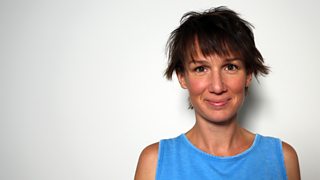Ethics
If a driverless car has to choose between crashing you into a school bus or a wall, who do you want to be programming that decision? Aleks Krotoski explores ethics in technology.
If a driverless car has to choose between crashing you into a school bus or a wall who do you want to be programming that decision? Aleks Krotoski explores ethics in technology.
Join Aleks as she finds out if it's even possible for a device to 'behave' in a morally prescribed way through looking at attempts to make a smart phone 'kosher'. But nothing captures the conundrum quite like the ethical questions raised by driverless cars and it's the issues they raise that she explores with engineer turned philosopher Jason Millar and robot ethicist Kate Darling.
Professor of law and medicine Sheila MacLean offers a comparison with how codes of medical ethics were developed before we hear the story of Gus a 13 year old whose world was transformed by SIRI.
Producer Peter McManus.
Last on
Clips
-
![]()
Douglas Coupland on the ethics of engineers
Duration: 02:18
-
![]()
Would you kill the robot?
Duration: 02:05
Music Played
-
![]()
Cristobal Tapia de Veer
Meditative Chaos
- Utopia.
-
![]()
melodium
I've Been Here Before
My Mind is falling to pieces
-
![]()
Hauschka
Ginsterweg
- Snowflakes and Carwrecks.
-
![]()
melodium
Orphea 5
- Phoebe.
-
![]()
Ralph van Raat
Phrygian Gates
- John Adams Complete Piano Music.
-
![]()
Cristobal Tapia de Veer
Death Cargo
- Utopia.
Jason Millar

was an engineer before returning to the academic world to pursue philosophy studies at Queen’s University at Kingston, and he teaches a 3rd year undergraduate course in Robot Ethics at Carleton University.
He explains how the ethical of tech development has so far been left to engineers, and why that has to change as becomes a greater part of our everyday lives.
Kate Darling

is a Research Specialist at the MIT Media Lab, a Fellow at the Harvard Berkman Center for Internet & Society, and a Visiting Fellow at the Yale Information Society Project.
She talks to us about, anthropomorphism, robot ethics and the potential benefits technology can have for vulnerable people – also, robot dinosaurs.
Dr Alana Vincent

is Lecturer in Jewish Studies at the University of Chester.
She talks to us about the strict moral laws of the Ultra-Orthodox Jewish community, and how they can be implemented into modern tech to make devices Kosher.
Assaf Nativ

is a software developer in Israel, who was approached with an unusual request – to disable most of the functions of a phone and make it Kosher.
He explains what he had to do to a standard Nokia to get it approved for use in the Ultra Orthadox community.
Judith Newman
is an author and journalist for publications including Harper’s, Vanity Fair and the New York Times.
She wrote an article called ‘, about how the benefits her autistic son got from conversations with Siri. We catch up with both at them at home and find out how things have changed for the better, and if Judith has any reservations about the relationship between Siri and her son.
Professor Sheila McLean

is Professor Emerita of Law and Ethics in Medicine at the University of Glasgow.
She explains how ethical guidelines were developed in Medicine, and how a similar approach could be used in the technological world.
Broadcasts
- Mon 17 Nov 2014 16:30�鶹������ҳ��� Radio 4
- Fri 9 Oct 2015 23:27�鶹������ҳ��� Radio 4
Featured in...
![]()
The Digital Human—The Digital Human
Aleks Krotoski explores the digital world
Podcast
-
![]()
The Digital Human
Aleks Krotoski explores the digital world






